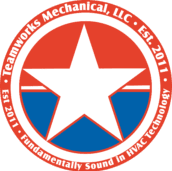The Evolution of Boiler Controls & Automation
In the old days, controlling boilers was a hands-on job. People had to manually tweak settings and keep an eye on the combustion process. But, this method had its challenges. It took a lot of time and was prone to mistakes, which could lead to inefficiencies and safety concerns. Thankfully, technology has stepped in to change all that! Nowadays, we have smart systems that do all the hard work. They monitor everything and make sure boilers run efficiently and safely. Leaving humans free to focus on other important tasks. It's like having a super-smart assistant that ensures everything works perfectly!
However, with advancements in technology, boiler controls and automation have greatly improved. Today, we have sophisticated control systems. They monitor and regulate temperature, pressure, fuel flow, and combustion efficiency in real-time. These systems use sensors, actuators, and algorithms to automate the process. Also use, optimizing energy efficiency and ensuring safe operation.
The reason we've come so far in boiler controls and automation is that we wanted to be more efficient and safer. As energy prices have gone up and environmental issues have become more important. We needed systems that could use fuel better and pollute less. There are rules and regulations that we have to follow to keep everyone safe and protect the environment. So, automation became a must. It helps industries meet these high standards and do their part for the planet. In a nutshell, we've come a long way because we want to save energy, reduce pollution, and play by the rules!
Components of Boiler Controls and Automation
Thanks to the technology and machine learning. Boiler controls and automation have become even cooler. These smart technologies help us predict when maintenance is needed. Allowing us to fix things before they break. Plus, we can keep an eye on everything from afar through remote monitoring. And the best part? The system can learn and adapt, making everything run even smoother. So, thanks to these high-tech tools, we can keep our boilers in top shape and minimize any downtime!
The evolution of boiler controls and automation has revolutionized. The way industrial process heating systems operate. With improved efficiency, safety, and flexibility, these systems have become essential for industries. For those, seeking to stay competitive in a rapidly changing landscape.
Benefits of Boiler Controls and Automation
Boiler controls and automation offer a multitude of benefits for industrial heating systems. They enhance energy efficiency by optimizing fuel consumption and reducing waste. By constantly monitoring and adjusting temperature, pressure, and fuel flow. These systems ensure that boilers operate at their peak efficiency. Saving both energy and money. Boiler controls and automation significantly improve safety. With real-time monitoring and precise control over the combustion process. The risk of accidents and malfunctions is minimized. These systems can detect and respond to potential issues before they become major problems. Preventing equipment damage and ensuring the safety of operators.
Controls and automation increase reliability by automating maintenance tasks and providing predictive insights. They can identify and resolve issues proactively. Minimizing downtime and extending the lifespan of the boiler equipment. These technologies enable remote monitoring and control. Allowing operators to access and manage boiler systems from anywhere. This remote capability enhances flexibility and efficiency. Especially in situations where immediate adjustments are required.
Compliance With Regulatory Standards:
Boiler controls and automation ensure compliance with regulatory standards. By closely monitoring emissions and maintaining efficient combustion. These systems help industries meet environmental and safety regulations. These technologies offer adaptability and customization options. They can be tailored to specific operational needs. Making them suitable for various industries and processes. These controls and automation provide valuable data insights and analytics. By collecting and analyzing data, operators can gain valuable insights into performance trends. Identify opportunities for improvement, and make informed decisions.
The benefits of boiler controls and automation are a game-changer! They help industries in so many ways. First off, they make sure we're using energy super wisely, saving both power and money. Safety is on top, with precise control over everything, accidents are way less likely. Plus, these systems are like detectives. Constantly checking for issues and fixing them before they become big problems.
Enhanced Energy Efficiency:
The benefit of boiler controls and automation is significant improvement in energy efficiency. These systems are designed to optimize fuel consumption and reduce waste. Ultimately leading to cost savings for industries. Boiler controls and automation optimize temperature, pressure, and fuel flow for peak efficiency.
With the ability to precisely control the combustion process. These systems can adjust the air-to-fuel ratio in real time. And, ensure complete and efficient fuel combustion. This maximizes energy output but also minimizes the production of harmful emissions.
Moreover, advanced control algorithms and sensors enable intelligent load management, where boilers can modulate their output based on demand. This means that energy is only consumed when it is needed, reducing idle time and further improving efficiency.
Improved Safety:
Safety is a top priority in any industrial process heating system. Boiler controls and automation play a crucial role in ensuring safe working environment. With real-time monitoring and precise control over the combustion process. These systems significantly reduce the risk of accidents and malfunctions.
Boiler controls and automation utilize advanced sensors and actuators. They constantly monitor parameters such as temperature, pressure, and fuel flow. They can detect any deviations from the desired settings. And, automatically make adjustments to maintain safe conditions. This approach minimizes risk of equipment damage and ensures the safety of workers.
These systems also provide early detection and warning of potential issues. By analyzing data and using algorithms. They can identify trends or anomalies that may indicate a potential safety hazard. This allows operators to take preventive measures before any major problems occur.
Increased Reliability:
In any industrial process heating system, reliability is a critical factor. The last thing any industry wants is unexpected downtime or equipment failures. That's where boiler controls and automation come in. Offering increased reliability and peace of mind for operators.
With advanced control systems and automation. Boiler operations can be closely monitored and maintained to prevent any potential issues. It uses sensors and algorithms to assess the condition of the boiler equipment and make necessary adjustments. This proactive approach helps identify and resolve problems. Before they escalate into major breakdowns.
Boiler Controls And Automation
Boiler controls and automation enable predictive maintenance. By analyzing data and detecting early signs of equipment wear or failure. Operators can plan maintenance activities in advance. This means that necessary repairs or replacements can be scheduled during planned downtime. This minimizes any disruption to production.
By investing in reliable boiler controls and automation. Industries can greatly reduce the risk of unexpected breakdowns. maximize equipment lifespan, and ensure consistent operation. This not only saves time and money but also boosts overall productivity. With increased reliability, industries can focus on their core operations. And, meet production targets without worrying about equipment failures.
Remote Monitoring and Control:
Remote monitoring and control make a big difference in boiler systems. This tech lets operators handle boilers from anywhere. It gives lots of flexibility and efficiency. Imagine you can watch how your boiler works. Change settings, and get instant alerts using your phone. Remote monitoring systems make it happen. Whether you're there or far away, you have total control over your boiler.
This capability is particularly valuable in situations where immediate adjustments are required. For example, if there is a sudden change in demand or if there is a safety concern. Operators can quickly respond and make necessary changes remotely. This not only saves time and effort but also ensures that the boiler system is running optimally at all times.
Remote monitoring and control enable predictive maintenance. Operators can track the performance of their boilers and identify any potential issues. Before they become major problems, they can counter them. By monitoring key parameters and analyzing data. Operators can schedule maintenance activities proactively, minimizing downtime and maximizing equipment lifespan.
Compliance with Regulations:
Meeting rules is really important for heating systems. Boilers need to follow strict environmental and safety laws. That's where boiler controls and automation come in.
These systems keep an eye on emissions and how efficiently the boiler burns fuel. They use smart technology to track things like fuel use and temperature. By keeping an eye on these factors, the systems help industries follow the rules. They cut down on harmful emissions and make sure the combustion is clean.
Safety is also a big concern. Boilers have to run in certain ways to keep everyone safe. Automation helps by checking pressure and temperature in real time. If something goes wrong, the system acts fast. It stops accidents and keeps people and equipment safe.
Adaptability and Customization:
Adaptability and customization are super important for boiler controls and automation. Every industry is different, so these systems need to fit unique needs. These technologies can be changed to fit specific requirements. They can adjust temperature, pressure, and fuel use. This customization helps industries perform at their best. Being adaptable is key in a changing world. Industries need systems that can fit with what they already have and adjust as things change. Whether it's upgrading equipment or following new rules. Boiler controls and automation need to be flexible and ready for anything.
Data Insights and Analytics:
Understanding data through insights and analytics is really important for boiler systems. These tools help operators gather and analyze data to see how well their boilers are working. By looking at this information, industries can make smart choices. Find areas to improve, and make their operations better.
One great thing about data insights is that they help track how well the boilers are doing over time. By gathering data on things like temperature, pressure, fuel use, and emissions. Operators can see patterns and changes. This helps them find where the boilers can work better and fix problems.
Additionally, data insights can predict future issues. By studying past data and using special calculations. Operators can see problems coming and fix them before they happen. This proactive way of maintenance reduces downtime, saves money on repairs. And makes boilers last longer.




















